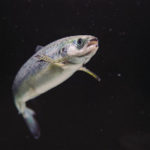Agriculture in general
Water in sufficient quantity and quality is the basic prerequisite for sustainable and successful farming. Whether it's growing plant and animal or fish farming. Only with a good water quality you are able to use the the ful potential of your natural resources. Unfortunately, rain and rainwater are very unevenly distributed in this world. We've got enough rain in the northern hemisphere for doing agriculture. But looking at the hot and dry summers of recent years, most propably caused by the climate change, have shown how easily it can affect our farmers. The pictures of crop failures or lower crop yields due to lack of water, are still in the minds of the farmers.
To be honest, agriculture or fish farming are currently not among the main activities of Merus. This is mainly due to the fact that we have little insight into the processes on the arable or breeding farm. Our competence in food is currently more on the consumer side. 🙂
For this reason, we have looked over the years for partners, who are familiar with the topics of animal breeding, aquaculture and crop yields. Doing so, we were able to achieve positive results for our customer's operations. By comprehensively monitoring the results, we have also become familiar with new and sometimes surprising effects of the Merus Ring in agriculture.
Merus need and use the expertise of our local partners to talk to farmers or livestock breeders and thus contribute to successful agriculture.
We'll introduce you to how we might be able to help as Merus. By reducing the cost of farming and increase the use of existing resources. Below we refer to applications in which we have had good experience in the past. And where we installed our Merus Rings successfully.
Agriculture - how Merus Rings can contribute
Farming

The world's first human settlements have emerged along rivers. Sufficient water was available to supply people, animals and fields. This has allowed a high food security and sufficient supply of food. Successful farming made cultures thrieve. In some favoratable places and where sustainable agriculture is done, this is still the case today. In some regions three harvests per year are achieved.
The Nile in Egypt or the Ganges in India are intensively used for agricultural purposes and food production. At the Nile, the groundwater is already tapped up to 150 km far inland. Unfortunately, this resource is also finite. From the plane you can see very well: Where the irrigation ends, the desert begins.
The further away you are from the Nile, the deeper you have to drill. Sophisticated methods can be used to drill even deeper wells. But the well water also becomes richer and richer in minerals, i.e. salts. As a result, soils are salinated and the fields become snow-white. On salinated soils, crop production is not possible, as cultivated plants grow much worse or no longer at all.
To prevent this, there is a WHO recommendation on irrigation. If possible, only water with less than 800 TDS should be used.
But what does a farmer do whose only water has very high TDS values? Here again it often hits the poorest, who have no alternative or simply don't know better, because they don't have the necessary information on how to keep the soil health.
Using Merus Rings, most problems around water in agricultural facilities can be reduced. In the past, we have achieved, among others, the following results:
- Remediation of salinated soils
- Small seedlings of plants grow faster
- Fertilizers and pestizides works more efficiently, because of better solubility
- Irrigation system is free of lime and rust
Livestock farming

We have also tried to confirm this experience with livestock, i.e. cattle, pigs or poultry. This subject is not as simple as it sounds. In livestock farming, animals do not necessarily have the choice of what to drink. In an organic farm, a pig may have the chance to drink rainwater. This is not possible in an industrialized factory with mass livestock farming. The animals have to use what is made available to them. But we are on this topic, and will report as soon we have solid figures.
According to experience reports from farmers with whom we cooperate, we can make the following observations:
- Farm animals that get good water require less concentrated feed
- Fewer additives are needed in water because they dissolve better
- Reducing fecal and total coliform bacteria in wastewater of a pigfarm
- Savings and optimisation of water consumption to maintain the temperature in chicken houses
Fish farming

Today, fish are bred in industrial structures in aquacultures. Salmon play a central role here. These are among the most popular fish in the world. Today, millions of farmed salmon populate the aquacultures in the fjords of the North Sea. These waters are actually clear and clean, hardly any industrial pollution. But as with all monocultures, fish farms are not spared from pests. It's hard to believe, but with salmon, it's lice that damage the fish. In such an environment, with the high density of populations, it is not surprising that diseases or parasites spread very quickly.
Using chemical club is hardly possible. Aquaculture is an open system. This would spread the chemicals all over the fjord. This also contradicts the ecological production of organic salmon. Therefore, the trend goes towards fish farming in huge halls. There the farmers breed the fish in separate tanks.
Here we have achieved astonishing results:
